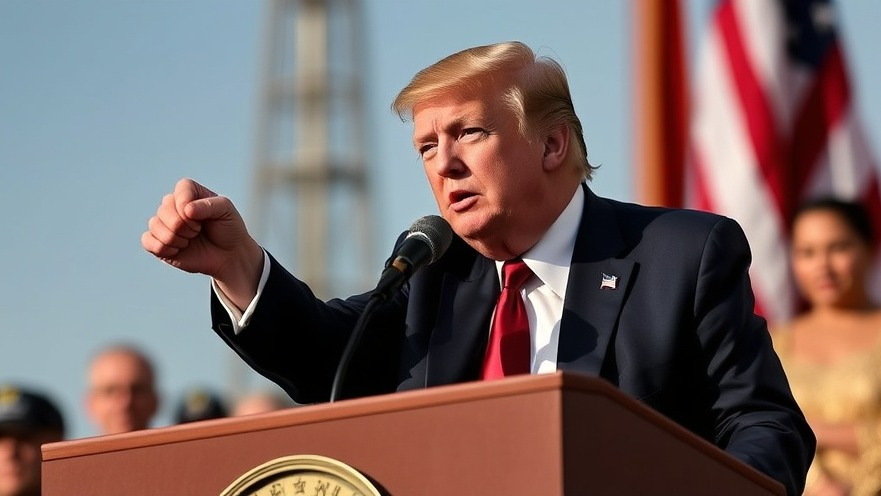
What Trump’s Tariffs Mean for Global Cinema
Donald Trump's recent announcement to impose a staggering 100% tariff on movies produced outside the United States has sent shockwaves through Hollywood and the international film community. This controversial decision aligns with his broader push to prioritize American-made products, encapsulated in his slogan, “WE WANT MOVIES MADE IN AMERICA, AGAIN!” However, the ramifications of this policy can substantially impact not only the film industry but also the culture and history that art plays in a globalized world.
The Complex Nature of Film Production
One of the trickiest aspects of implementing such tariffs is the nature of modern filmmaking. Unlike physical goods, films are often products of international collaboration. They feature international actors, directors, and locations, making it challenging to define their 'nationality'. For example, Tom Cruise's latest film, Mission: Impossible – The Final Reckoning, was shot extensively in the UK, Malta, and South Africa, while incorporating American producers and funds. The digital era has fostered a fully globalized filmmaking environment, complicating any attempts to impose tariffs effectively.
Beyond the Tariff: A War on Outsourcing?
Interestingly, Trump's focus appears less on foreign films themselves and more on the practice of outsourcing by Hollywood studios. Many studios rely on international locales not just for their unique aesthetics but also for cost-effective production. For instance, Marvel's Thunderbolts utilized Kuala Lumpur for key scenes and recorded its score at London’s renowned Abbey Road studios. This kind of transnational production has become the norm, and Trump's tariffs could significantly hinder the strategic choices studios make.
The Future of the Film Industry
As the international film industry grapples with the implications of Trump's tariffs, predictions suggest that this could lead to detrimental effects on the diversity of films produced. A reduction in budget can mean fewer stories being told from underrepresented perspectives. With streaming services continuing to rise, accessible global narratives could be threatened, leading to a mono-cultural Hollywood. Complete reliance on economically feasible U.S. productions may strip away the rich tapestry of stories that cinema currently offers.
Diverse Perspectives and Counterarguments
While many are decrying Trump's tariff policies as destructive, proponents may argue that focusing on American-produced films can stimulate job growth domestically and assert U.S. cultural dominance. Yet this perspective often fails to consider the broader societal enrichment that comes from appreciating diverse cinematic voices. Movies are not merely entertainment; they serve as cultural artifacts that foster understanding and connection across borders.
Impacts Beyond Film
These tariffs have wider implications that reach the socio-cultural landscape beyond merely financial burdens. Boosterism for American-only cinema undermines the art of film as a tool for cultural diplomacy. It promotes an isolationist perspective that may lead to increased tensions between countries, particularly as nations like China take similar retaliatory measures.
Conclusion: A Call to Action in a Globalized World
As digital nomads, the implications of such policies are especially relevant to you. Engaging with international cinema preserves the financial viability of diverse film markets around the globe, ensuring that unique stories continue to be brought to light.
By supporting international films and advocating for a more inclusive approach towards global cinema, we can resist cultural isolationism and celebrate the richness of our shared human experience. If you value diversity and believe in the power of storytelling across cultures, it is time to delve into international films and lend your voice to a growing movement for cultural exchange. Take action by exploring foreign films available on streaming services, advocating against divisive tariffs, and embracing the beauty of cinema that transcends borders.
 Add Row
Add Row  Add
Add 




Write A Comment